Quotes & Sayings About Peloponnesian War
Enjoy reading and share 11 famous quotes about Peloponnesian War with everyone.
Top Peloponnesian War Quotes
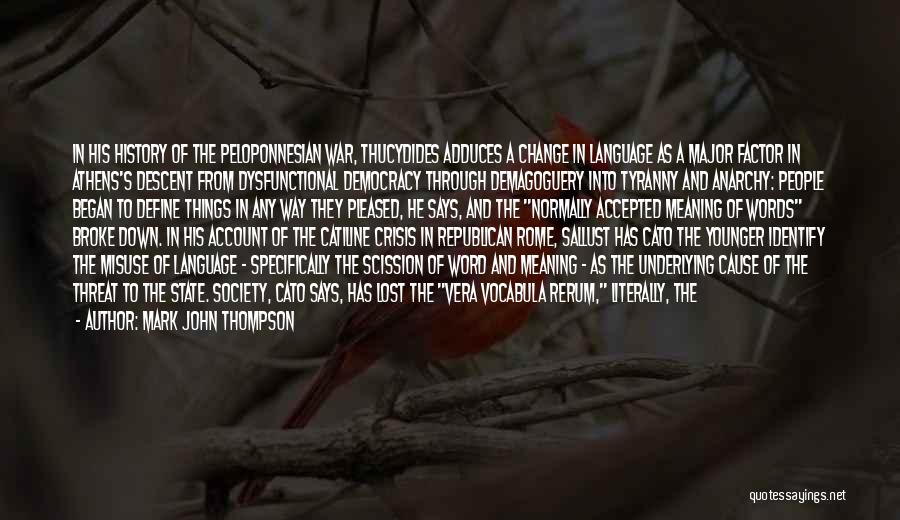
In his History of the Peloponnesian War, Thucydides adduces a change in language as a major factor in Athens's descent from dysfunctional democracy through demagoguery into tyranny and anarchy: people began to define things in any way they pleased, he says, and the "normally accepted meaning of words" broke down. In his account of the Catiline crisis in republican Rome, Sallust has Cato the Younger identify the misuse of language - specifically the scission of word and meaning - as the underlying cause of the threat to the state. Society, Cato says, has lost the "vera vocabula rerum," literally, the "true names of things."18 In seventeenth-century England, Thomas Hobbes lived through a civil war he believed had been caused in significant measure by a war of words about religion - spread through the pervasive pamphleteering that printing had made possible - that had fatally weakened the linguistic common ground on which an ordered state depends. — Mark John Thompson
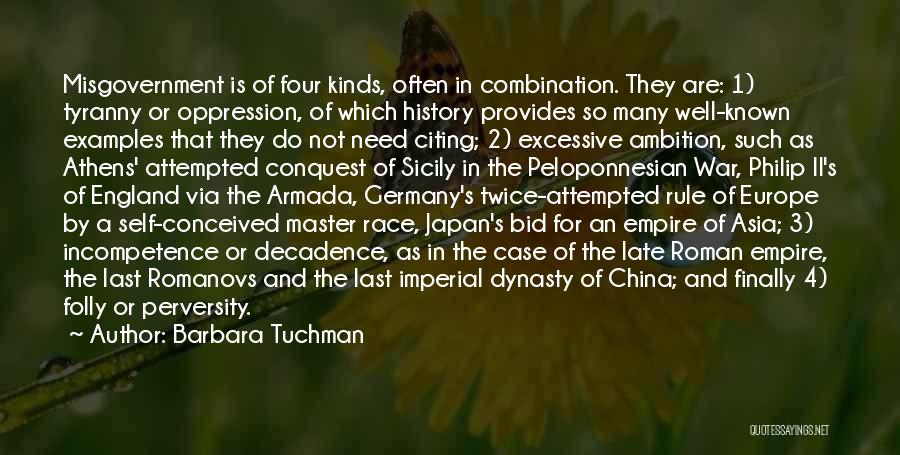
Misgovernment is of four kinds, often in combination. They are: 1) tyranny or oppression, of which history provides so many well-known examples that they do not need citing; 2) excessive ambition, such as Athens' attempted conquest of Sicily in the Peloponnesian War, Philip II's of England via the Armada, Germany's twice-attempted rule of Europe by a self-conceived master race, Japan's bid for an empire of Asia; 3) incompetence or decadence, as in the case of the late Roman empire, the last Romanovs and the last imperial dynasty of China; and finally 4) folly or perversity. — Barbara Tuchman

Ridiculous! Why don't you go into gunrunning, and sell the ancient Athenians a couple of machine guns so they can win the Peloponnesian War? — Kurt Vonnegut
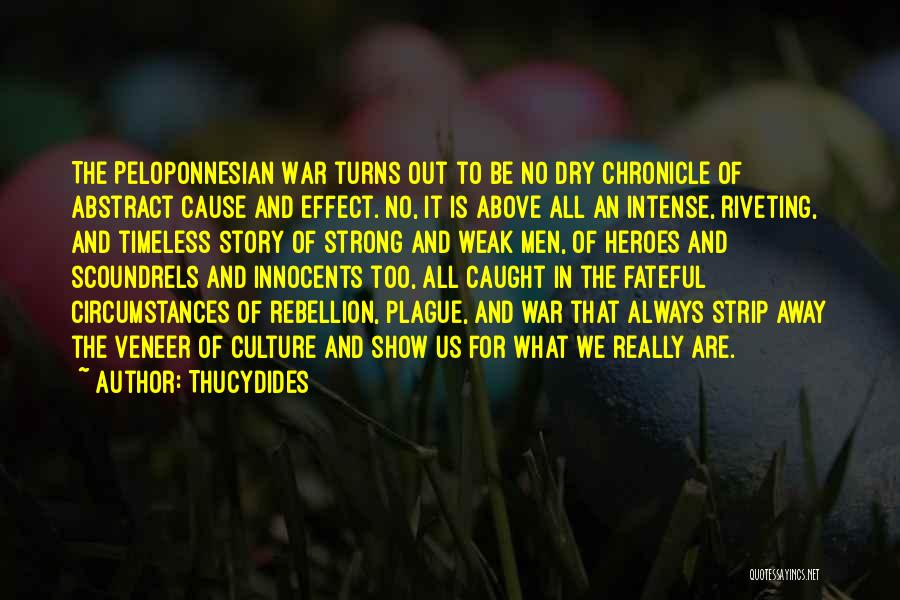
The Peloponnesian War turns out to be no dry chronicle of abstract cause and effect. No, it is above all an intense, riveting, and timeless story of strong and weak men, of heroes and scoundrels and innocents too, all caught in the fateful circumstances of rebellion, plague, and war that always strip away the veneer of culture and show us for what we really are. — Thucydides
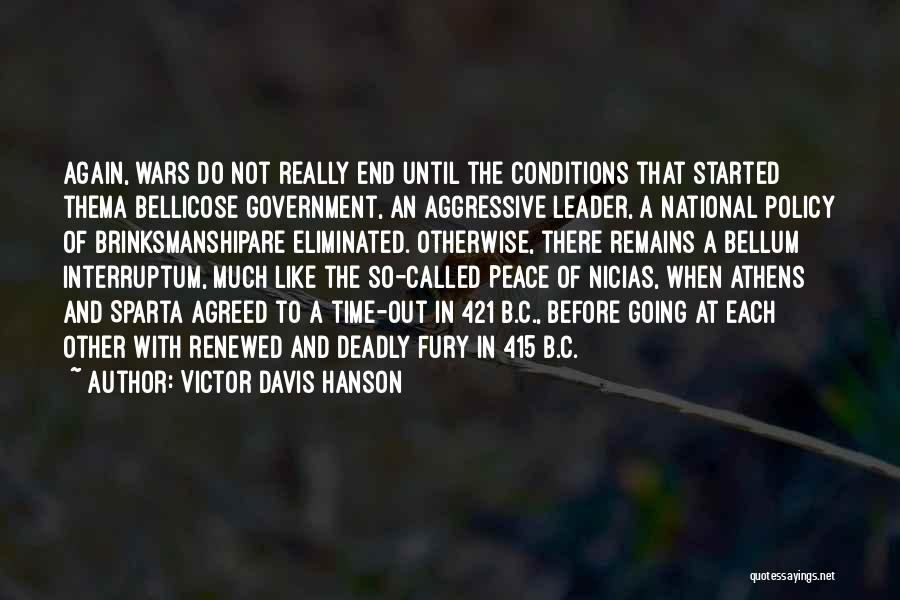
Again, wars do not really end until the conditions that started them
a bellicose government, an aggressive leader, a national policy of brinksmanship
are eliminated. Otherwise, there remains a bellum interruptum, much like the so-called Peace of Nicias, when Athens and Sparta agreed to a time-out in 421 B.C., before going at each other with renewed and deadly fury in 415 B.C. — Victor Davis Hanson
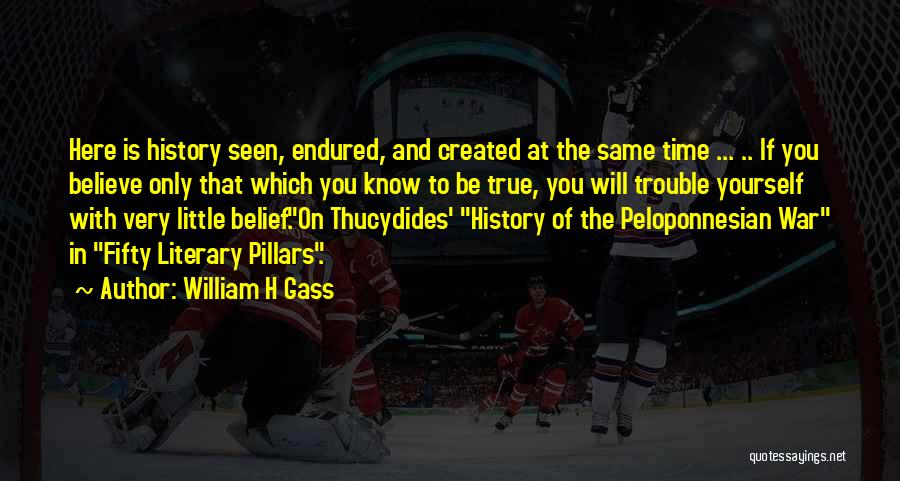
Here is history seen, endured, and created at the same time ... .. If you believe only that which you know to be true, you will trouble yourself with very little belief."
On Thucydides' "History of the Peloponnesian War" in "Fifty Literary Pillars". — William H Gass
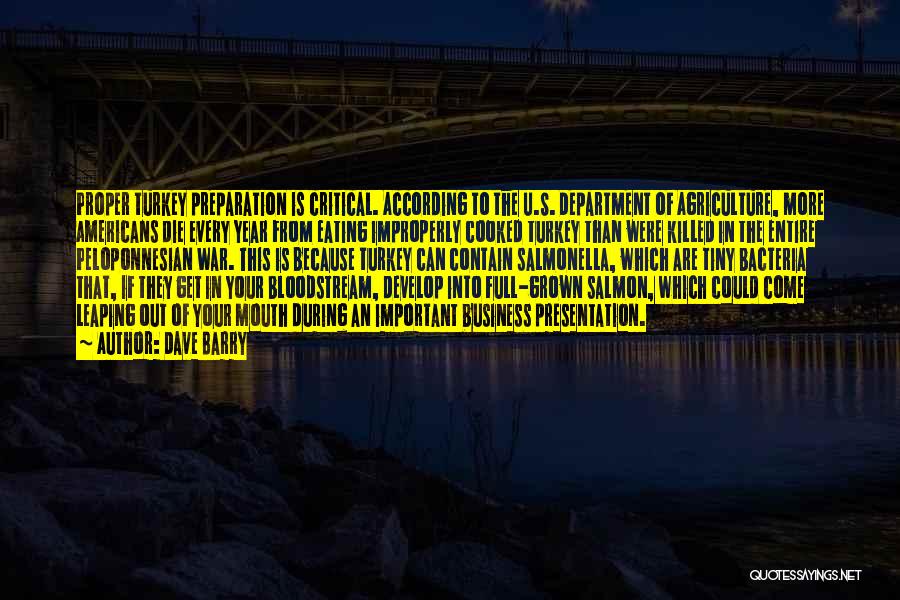
Proper turkey preparation is critical. According to the U.S. Department of Agriculture, more Americans die every year from eating improperly cooked turkey than were killed in the entire Peloponnesian War. This is because turkey can contain salmonella, which are tiny bacteria that, if they get in your bloodstream, develop into full-grown salmon, which could come leaping out of your mouth during an important business presentation. — Dave Barry
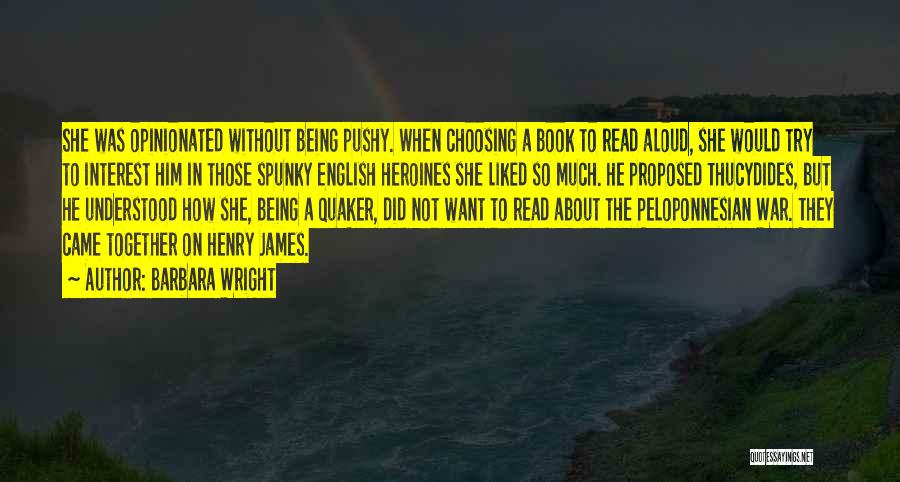
She was opinionated without being pushy. When choosing a book to read aloud, she would try to interest him in those spunky English heroines she liked so much. He proposed Thucydides, but he understood how she, being a Quaker, did not want to read about the Peloponnesian War. They came together on Henry James. — Barbara Wright

We are still waging Peloponnesian wars. Our control of the material world and our positive science have grown fantastically. But our very achievements turn against us, making politics more random and wars more bestial. — George Steiner
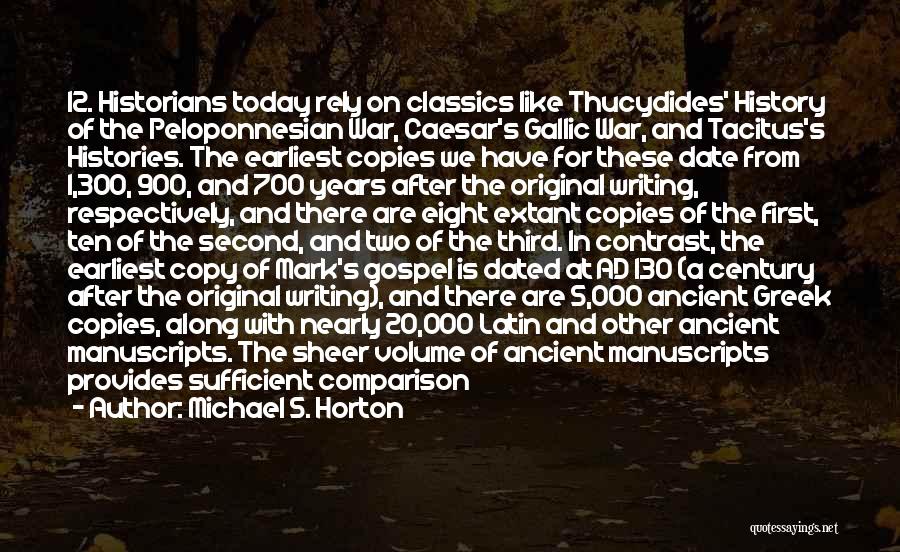
12. Historians today rely on classics like Thucydides' History of the Peloponnesian War, Caesar's Gallic War, and Tacitus's Histories. The earliest copies we have for these date from 1,300, 900, and 700 years after the original writing, respectively, and there are eight extant copies of the first, ten of the second, and two of the third. In contrast, the earliest copy of Mark's gospel is dated at AD 130 (a century after the original writing), and there are 5,000 ancient Greek copies, along with nearly 20,000 Latin and other ancient manuscripts. The sheer volume of ancient manuscripts provides sufficient comparison between copies to provide an accurate reproduction of the original text. Ironically, a number of fashionable scholars attracted to the so-called gnostic gospels as an "alternative Christianity" have far fewer manuscripts, and the original writings cannot be dated any earlier than a century after the canonical Gospels. — Michael S. Horton
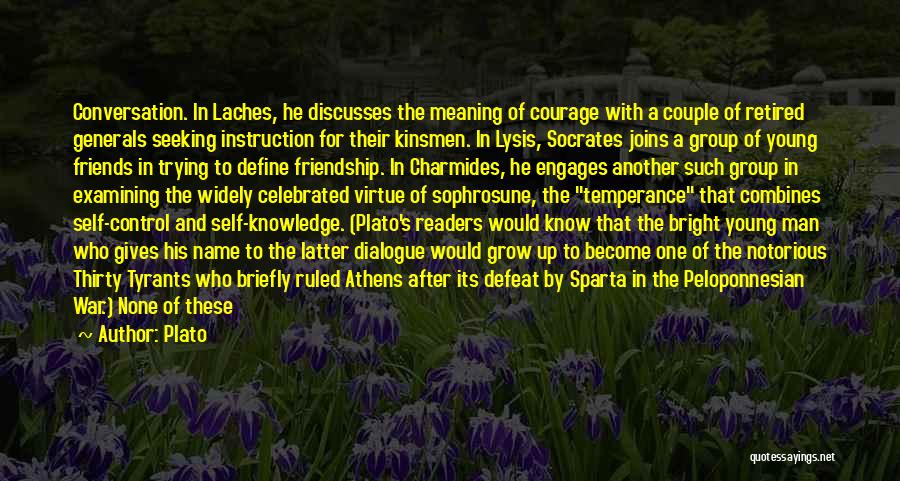
Conversation. In Laches, he discusses the meaning of courage with a couple of retired generals seeking instruction for their kinsmen. In Lysis, Socrates joins a group of young friends in trying to define friendship. In Charmides, he engages another such group in examining the widely celebrated virtue of sophrosune, the "temperance" that combines self-control and self-knowledge. (Plato's readers would know that the bright young man who gives his name to the latter dialogue would grow up to become one of the notorious Thirty Tyrants who briefly ruled Athens after its defeat by Sparta in the Peloponnesian War.) None of these dialogues reaches definite conclusions. They end in aporia, contradictions or other difficulties. The Socratic dialogues are aporetic: his interlocutors are left puzzled about what they thought they knew. Socrates's cross-examination, or elenchus, exposes their ignorance, but he exhorts his fellows to — Plato





